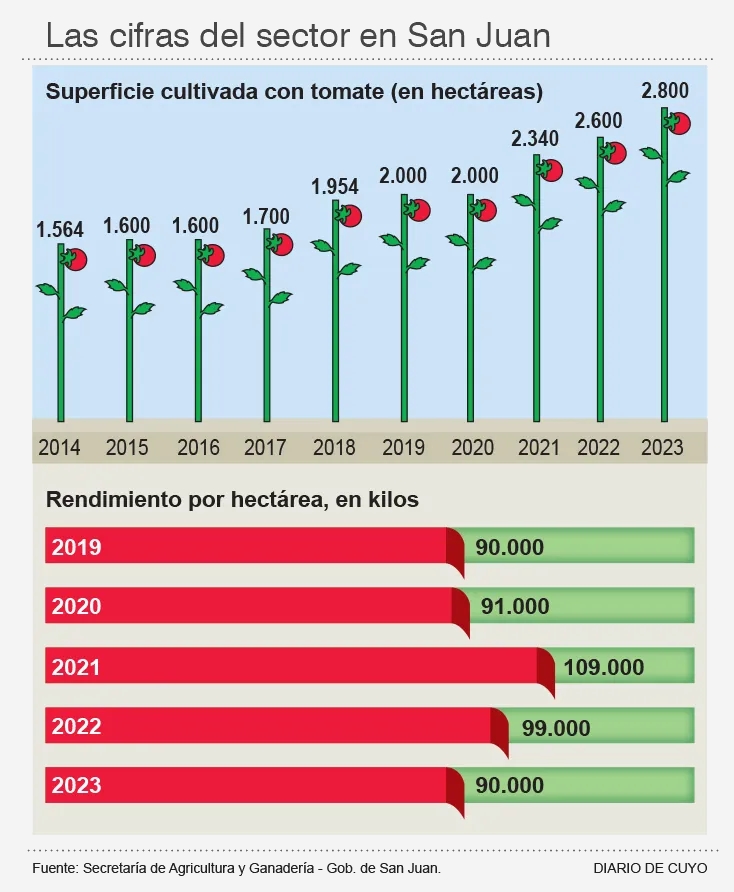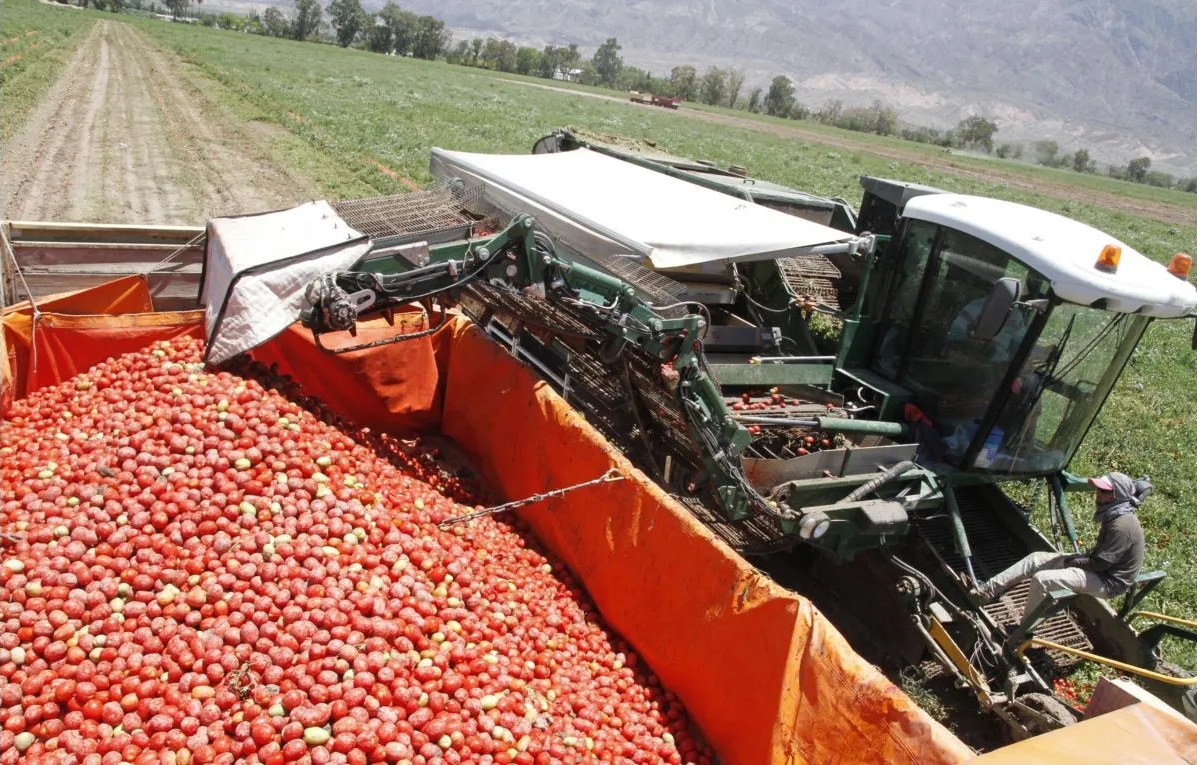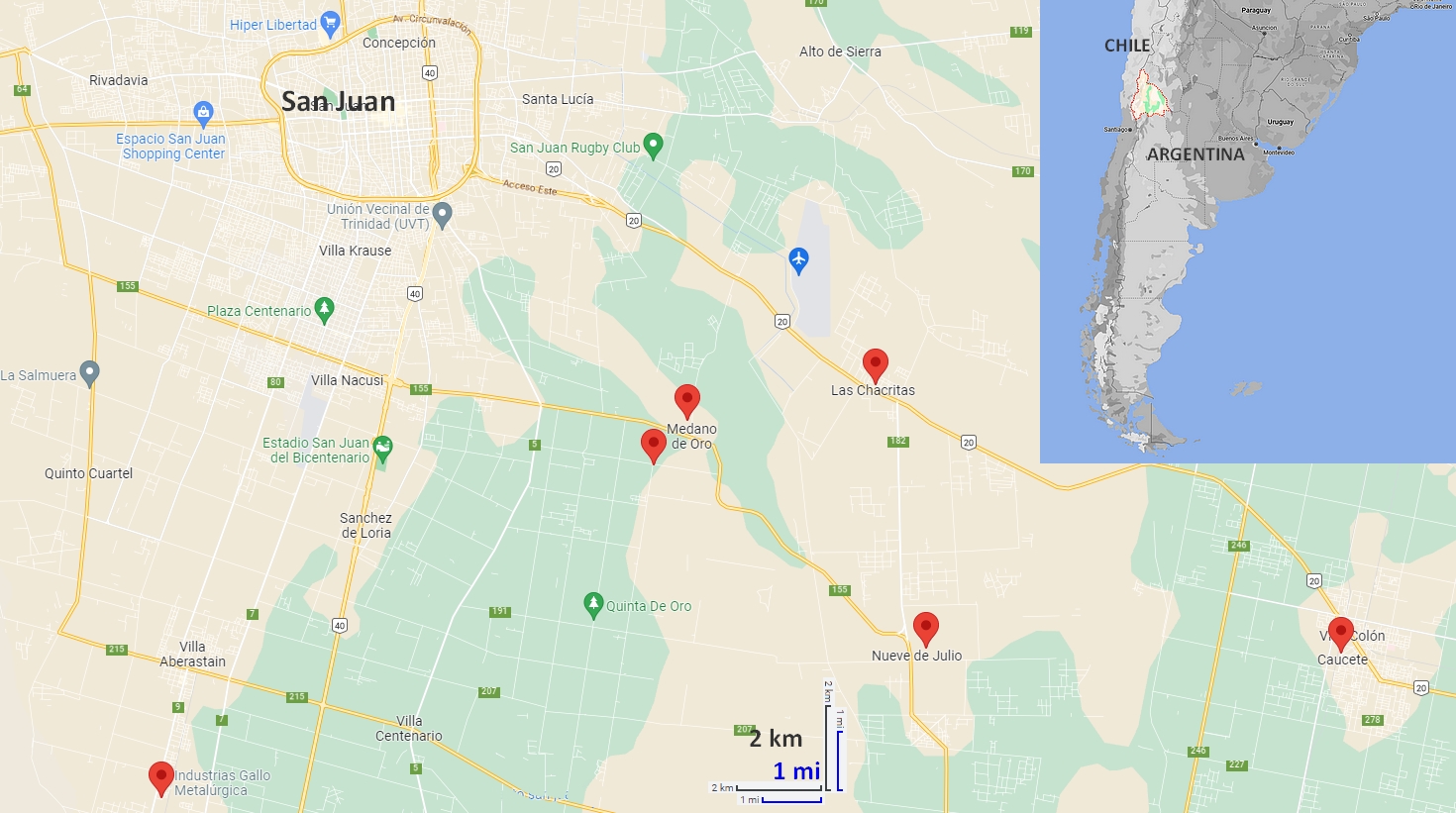Extreme heat and hail have affected plant yields, which could fall locally to about 90 metric tonnes per hectare, compared to 99 mT/ha last year. This drop in yield comes at a time when processing tomato acreage has increased.
In recent weeks, weather conditions have affected the Argentine agricultural sector. Processing tomatoes, which are the country's most important processed vegetable crop, have suffered losses of up to 20 or 25% on early varieties, depending on the region.
However, the season has brought good news for the processing tomato sector, especially for the agricultural areas of the Central San Juan Valley, with the persistence of a significant demand for the product. For this reason, according to the local press, some operators who had not been active for years have resumed their activities, in San Juan, Mendoza and even La Rioja, to the point that some new processing plants have opened.
The difficult weather conditions could lead to an increase in the "free" price per kilo of tomatoes intended for factories, when deliveries are made without prior agreement with the companies. For other deliveries, the value written in the contracts, fixed in advance, is about USD 125 per metric tonne.

According to official statistics, surface areas dedicated this year to processing tomatoes in the San Juan region have increased by 200 hectares, or about 8%, compared to the previous season, from 2,600 hectares in 2022 to 2,800 hectares this year. However, yields could fall by a few points, leading to a 5,400 tonne decrease in the quantities processed, from 257,400 mT in 2022 to 252,000 mT in 2023 (about 2% less than the previous season), despite the growth in planted surfaces, according to data from the Ministry of Agriculture and Livestock of the province of San Juan.
Despite the expected decrease for this season, the region of San Juan remains a top performer in terms of the yields per hectare throughout the country, since the national average is around 80 tonnes per hectare.
As explained by Martín Gómez Sabatié, agricultural engineer and area manager, employed by the Secretariat of Agriculture for the Government of San Juan, the processing tomato harvest in San Juan lasts about four months, from the end of December to the beginning of April, which gives growers the option of planting both early and late varieties. According to Sabatié, the first part of the season was disrupted by the weather, which is confirmed by local professional sources, who nonetheless expect usual productivity levels to be recovered with the late varieties. He pointed out that the heat wave occurred after the relatively cool months of September and October, at the time of fruit set, and clearly affected the yields.
Elio Cantoni, agricultural engineer with the AVA (Alimentos Vegetales Argentinos) cannery, in Tunuyán, Mendoza, estimates that "the first batches, transplanted between weeks 35 and 37 (first two weeks of September), which were considered early, have now all been harvested and evaluated, and show an average yield decrease of 20%. The initial cold and mostly windy weather has been the main cause of these decreases. Some growers, in Pocito, who hoped to harvest between 110,000 and 120,000 kilos per hectare, ended up with only 90,000 to 100,000. Some of them even had infestations of caterpillars or worms, which reduced the yields."

According to several processing tomato growers, agricultural engineers, processing company technicians, and input supply operators, the best results were then obtained on plots that were transplanted between weeks 39 and 44 (between late September and early November), with larger fruit size, higher yields per hectare and better quality in general. "The average is estimated to be 90 metric tonnes (mT) per hectare," some growers say. "But a number of growers, on smaller planted surfaces (5 to 7 hectares), have achieved yields of 145 mT/ha to 150 mT/ha. There is some of everything this year, but these results are exceptions, and the average has decreased."
It has been a difficult year, marked by extreme climate variability, with frosts caused by spring winds, added to which several hail storms (end of January) and rain (until the first week of February) as well as a prolonged heat-wave, have resulted in a reduction of the volume of fruit and in spread-out ripening stages. Nevertheless, according to professional sources, at the time of writing this article, the Argentinean sector expects to harvest and process 650,000 mT instead of the 665,000 mT initially expected.
According to the Secretariat of Agriculture for the Government of San Juan, the good yields obtained in that area are the result of several factors. One of the first of them is the increased use of technology in processing tomato crops, with almost 95% of the plantations using drip irrigation, an improved crop since about 80% of harvest operations are mechanized, with 60% of the transplanting operations also carried out with the help of machines. The area manager also highlighted the work of the Tomate 2000 Association, which brings together a dozen processors from Mendoza and San Juan and the growers themselves, for whom it provides advice to improve the crops.

The current situation in Argentina is such that national demand exceeds supply, which means that the national industry is still not able to produce what the Argentinian population consumes. The part of demand not covered by the Argentine industry is mainly covered by tomato products imported from Chile. "There are still not enough tomatoes to supply the domestic market, which means that production has no ceiling," explains Gómez Sabatié.
The area manager explains that despite the major role played by weather conditions in this industrial sector, the fact that more than 95% of the local crops are drip-irrigated has been fundamental in avoiding tomatoes being overly penalized by the water crisis, which on the other hand has heavily affected vineyards, a crop in which irrigation improvements have not progressed as fast.
The entire Argentinean tomato production occupies about 17,000 hectares, with a harvested volume of about 1 million tonnes. It is the second most important horticultural crop after potatoes. About 60% of the harvested quantities are destined for the fresh consumption market and 40% for the processing industry. The crops are mainly located in the provinces of Mendoza and San Juan (Cuyo), Salta and Jujuy (NOA), Corrientes and Formosa (NEA), Rio Negro and Buenos Aires. In the province of San Juan, Pocito continues to be the zone with the largest surface area dedicated to early tomato crops, with almost 45% of the total. The rest of the crops are concentrated in Rawson, Veinticinco de Mayo and San Martín, among the main areas.
It is also worth noting that the area dedicated to processing tomatoes in Mendoza has increased in recent years. Mendoza is a key production region that together with San Juan accounts for more than 80% of national production.
Source: diariodecuyo.com.ar



































